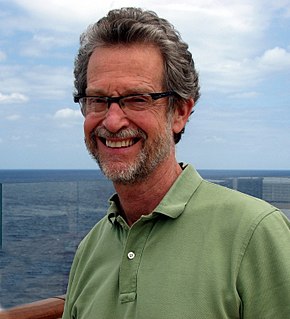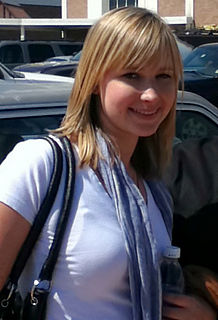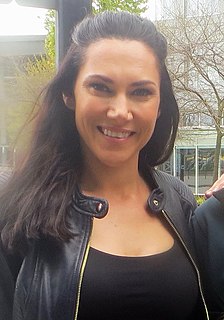A Quote by Ridley Pearson
There's a fine line between imagination and reality. An inventor dreams something up, and pretty soon, it's there on the table before him. A science-fiction writer envisions another world, and then some space probe finds it. If you believe in something strongly enough, I think you can make it happen.
Quote Topics
Related Quotes
Literary science fiction is a very, very narrow band of the publishing business. I love science fiction in more of a pop-culture sense. And by the way, the line between science fiction and reality has blurred a lot in my life doing deep ocean expeditions and working on actual space projects and so on. So I tend to be more fascinated by the reality of the science-fiction world in which we live.
This fact was something I also learned from this first novel that I needed personal experience to invent, to fantasize, to create fiction, but at the same time I needed some distance, some perspective on this experience in order to feel free enough to manipulate it and to transform it into fiction. If the experience is very close, I feel inhibited. I have never been able to write fiction about something that has happened to me recently. If the closeness of the real reality, of living reality, is to have a persuasive effect on my imagination, I need a distance, a distance in time and in space.
I think there's such a fine line in a relationship. The role of imagination and privacy... how much space can you allow before that becomes distance? And similarly, imagination is empathy. That's how you achieve empathy. It's how you can be with another person and understand how they are in the world.
Much blood has also been spilled on the carpet in attempts to distinguish between science fiction and fantasy. I have suggested an operational definition: science fiction is something that COULD happen - but usually you wouldn't want it to. Fantasy is something that COULDN'T happen - though often you only wish that it could.
I have always been intensely uncomfortable with the idea of a science fiction writer as prophet. Not that there haven't been science fiction writers who think of themselves as having some sort of prophetic role, but when I think of that, I always think of H.G. Wells - he would think of what was going to happen, and he would imagine how it would happen, and then he would create a fiction to illustrate the idea that he'd had. And no part of my process has ever resembled that at all.
Everybody struggles to come up with stuff that no one has ever seen before. It's a fine line between trying to get creative and doing something that's new, fresh and different - yet, for me, something that's based in reality that would actually work in these situations. These are the keys to great fight scenes and action sequences.
We live in an uncertain world and we want to believe that what a man is and what a woman is-I know that. And people don't want to critically interrogate the world around them. Whenever I'm afraid of something or I'm threatened by something, it's because it brings up some sort of insecurity in me. I think the reality is that most of us are insecure about our gender. They think, 'Okay, if there's this trans person over here, then what does that make me?
I had begun to think that dreams are meant to be no more than dreams and that in reality dreams don't come true. Then my brother (Zac) left on his trip. It was amazing to see all the support that he got from around the world and to see how everyone worked together to help make his dream reality. Watching him do this really made me believe that I could too.
Since the show [Helix] is based in real science, there are real-life epidemic scares out there, throughout history, where there are these huge viruses that have wiped out huge populations. So, we're dealing with something that the CDC hasn't seen before, but it comes from a virus. That's something that's based in reality, and then you put the science fiction on that and it's a really interesting combination.
I'm not a writer who's preaching some particular philosophy or something but the big questions do concern me and I like to make my readers think and debate and argue with each other and look at some aspect of the world or some act of governance or war or power and have an angle they haven't considered before, and that's something I strive for and hopefully have accomplished.
I guess...on one hand, I spent way too much time watching science fiction and reading science fiction when I was growing up. But a part of it is I also never felt much of a connection to the world in which I lived while I was growing up, and so, oddly enough, I think I felt a lot more connected to the worlds that I read about in science fiction.



































